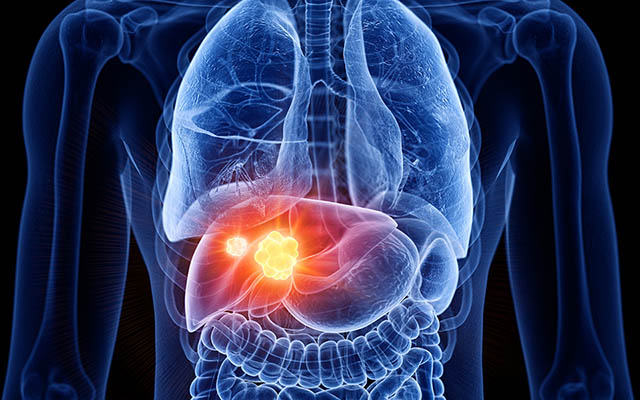New Study Flips the Script on Liver Cancer
UC San Diego scientists find protein associated with liver cancer may actually be key to protecting against it
Story by:
Published Date
Story by:
Topics covered:
Share This:
Article Content
Liver cancer is the third leading cause of cancer death and the sixth most common cancer type worldwide. Major risk factors include environmental and metabolic stressors, such as obesity, viral hepatitis and steatohepatitis (fatty and inflamed liver).
These stressors damage the liver by killing hepatocytes, the major cell type in the liver. The cell death then triggers an inflammatory response which signals the liver to generate a new batch of hepatocytes. But this sudden push towards cellular proliferation also increases the risk of tumor formation.
In a new study, scientists at University of California San Diego School of Medicine investigated the role of activating transcription factor 4 (ATF4), a key mediator of the liver stress response. Despite being previously associated with advanced liver cancer, the researchers found that ATF4 actually protected the liver against hepatocyte death and subsequent tumor formation. The unexpected results could now inspire new clinical strategies for preventing liver disease and cancer.
The study, published March 28, 2023 in the Journal of Hepatology, was led by senior authors Michael Karin, PhD, Distinguished Professor of Pharmacology and Pathology at UC San Diego School of Medicine and Benjamin C. Yaden, PhD, associate vice president of Diabetes Novel Therapies and External Innovation at Eli Lilly.
ATF4 levels are typically low in healthy cells, but are elevated when the cell experiences stress. To study its role in the progression of liver cancer, researchers developed a mouse model with ATF4-deficient hepatocytes. The mice were then exposed to various stressors to promote liver damage and tumor formation.
The researchers were surprised to find that ATF4-deficient mice showed more hepatocyte cell death, inflammation, compensatory cellular proliferation and accelerated liver cancer development. This suggested that ATF4 protected against liver cancer in some way.
Further experiments led by postdoctoral fellow Feng He, PhD, confirmed that ATF4 promoted the expression of SLC7A11, a protein that helps maintain hepatocyte homeostasis. SLC7A11 then helped suppress a specific type of cell death, called ferroptosis. By reducing the amount of ferroptosis, the ATF4-SLC7A11 axis protected hepatocytes and slowed the progression from liver damage to liver cancer.

“Our study suggests that ferroptosis may be the most relevant form of hepatocyte death that leads to inflammation, compensatory proliferation and cancer in the liver,” said Karin. The researchers believe ferroptosis inhibitors or ATF4 activators may be clinically useful in preventing steatohepatitis and its progression to cancer.
Co-authors of this study include: Peng Zhang and Junlai Liu at UC San Diego, Ruolei Wang at Shanghai University of Traditional Chinese Medicine and Randal J. Kaufman at Sanford Burnham Prebys Medical Discovery Institute.
The study was funded, in part, by the Superfund Basic Research Program (grant P42-ES010337), National Institutes of Health (grants P01-DK098108, 5R01DK120714-02, R01-CA118165, R37-AI043477, P01-CA128814, R01-CA211794, R01-CA198103, R01-DK103185 and R01-DK113171), a C3 Pedal the Cause grant, the National Natural Science Foundation of China (grant 82172947) and the Eli Lilly LIFA program.
Disclosures: B.C.Y. is a full-time employee of Eli Lilly and Company. F.H. was partly supported by the Eli Lilly LIFA program.
“Our study suggests that ferroptosis may be the most relevant form of hepatocyte death that leads to inflammation, compensatory proliferation and cancer in the liver.”
You May Also Like
Stay in the Know
Keep up with all the latest from UC San Diego. Subscribe to the newsletter today.



